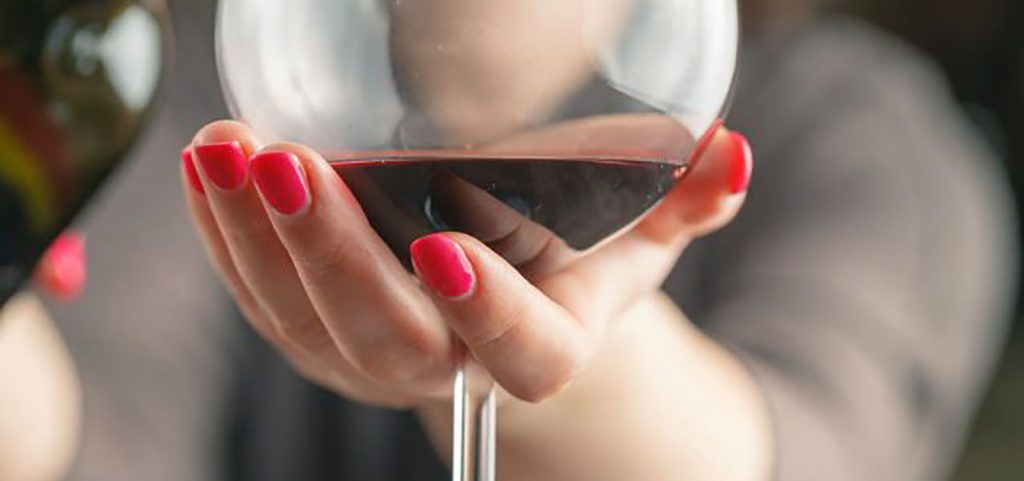‘Vineyards were places where women could make their way through love, hard work and determination. In the cool shade of pergolas and black Muscatel grapes, among vats and barrels of wine and spirits and deep in cellars, women were inspired to break down barriers, to create spaces where they could be free and run their own lives. The winemaking scene was particularly welcoming for women. There, they felt that the inequalities weren’t as obvious as in regions where other industries held sway. Although the traditional patriarchal economic, political and cultural restrictions applied across society, there was something about the winemaking scene that suggested that a rebellious woman could succeed. And so they tried, and in many cases they excelled.’
These words are taken from the historian Pablo Lacoste’s book La mujer y el vino: Emociones, vida privada y autonomía económica entre el Reino de Chile y el Virreinato del Río de la Plata (1561-1810) (Women and Wine: Emotion, Private Life and Economic Autonomy in the Kingdom of Chile and Viceregency of the Rio de la Plata 1561-1810), which analyzes centuries of a passionate relationship. Two hundred years after the period covered in the book they still very much apply, invested with new meaning.
Women have been major players on the Argentine wine scene for decades, with the first woman oenologist in Argentina, Susana Balbo, receiving her degree back in 1981. Nonetheless, until the end of the last century it was rare to see a woman in charge of a winery or setting herself up as an independent winemaker. But that has now changed thanks to the courage of pioneers and the younger generations who followed them. ‘I was lucky enough that many women oenologists and agricultural engineers had already forged a path of leadership in the industry. So I never really felt that a woman had to work any harder,’ says Rocío García, an oenologist at Bodega Sottano.
Her colleague, Bernardita Gil at Bodega Renacer, agrees: ‘Today things are very equal, most oenology teams have at least one or two women on them.’
The fact that more and more woman are working in strategic positions also helps to grow their numbers lower down in the hierarchy. Since 2012, Andrea Ferreyra has been Head of Oenology at La Celia and makes use of her position to encourage other women to join the industry: ‘For the 2021 harvest we had a lot of recently graduated women oenologists and advanced students working at the winery when before the only junior positions open to them were in the laboratory or as assistants.’
But what about outside the winery? What impact can the increased involvement of women in the industry have in terms of wider social inclusion for women?
In solidarity lies strength
Within the production chain, some realized that a horizontal organization would help to provide mutual support. A lot of women in the industry began to form different groups such as the Club of Women Wine Professionals, which now has 110 members.
‘It’s a social group. We share useful information, answer each other’s questions and generally provide a lot of help to one another. It’s not just on Whatsapp: sometimes we get together to share wines, chat and have fun,’ explains Verónica Ortego, an oenologist at Dartley Family Wines.
The information passed from smartphone to smartphone is almost exclusively technical; they’re constantly asking for tips about suppliers, equipment, regulations and innovations and so helping each other to grow.
‘There are a lot of us so someone usually answers immediately. A few days ago I needed some plastic bins for the harvest and someone immediately put me in touch with a supplier. We all have each other’s backs,’ says Constanza Gaitieri, the oenologist and owner of Malpensado Wines.
To the north of the country, women are also forming wine-based networks, but these also include women outside the industry and are working to overcome stubbornly misogynist traits in regional society.
‘In the society of Quebrada de Humahuaca women drinking wine was disapproved of,’ says Amelia Janko, Head of Communication at Bodega Fernando Dupont. In the belief that wine ‘brings people together’, a group was formed called ‘Las quebradeñas y el vino’ (Women of the Quebrada and Wine) which offers sommelier classes.
But these meetings went much further than simple tastings: they served as a means of sharing all manner of personal and family issues. The participants helped each other deal with problems and knew they were in good company as they developed their skills.
Nearby, another women’s group has set out to bring wine to women. It’s called ‘Comadres del vino’ (Wine Mothers), and is made up of Adriana Mattarollo from Bodega Tukma; Florencia Rodríguez, from the Nuevo Progreso restaurant; Carolina Ruíz from Bodega Don Milagro; Marisel Nazar from Bodega Cielo Arriba and Inés Manghesi from Viñas de Uquia.
These industry leaders organized several events throughout 2019 where high altitude wines combined with Andean cuisine. ‘We wanted to do away with the prejudice that women only drink sweet wine, maybe because they’re never given anything else,’ says Mattarollo.
This year, they plan to take things a step further. Proud of the creations and work of women from the area, they are looking to raise their visibility and create business opportunities through cultural change. ‘The patriarchy in the north of Argentina is supported by the matriarchy. We’ve decided to provide support and tools, for instance arranging a space where they can sell their products.’
Effective activism
In other regions of the country, several gender-based initiatives are being implemented by the industry. The Fundación Bemberg and Grupo Peñaflor, for example, are working on a programme to support Comprehensive Shelters for women and children who suffer from domestic violence in Mendoza.
The programme is run in the provinces of Mendoza, San Juan and Catamarca and has different facets: in addition to providing equipment and improving infrastructure, the focus is on helping women in the shelters to develop sustainable enterprises.
Empowerment workshops are being run focusing on issues such as self-esteem and emotional wellbeing as well as providing women with training in trades that will allow them to become economically independent.
In the same province, Familia Zuccardi is implementing a programme to help unemployed women who live nearby its vineyards. They have set up two sewing workshops, one in Santa Rosa and another in Maipú, where they learn the trade. They can then sell what they make: napkins, aprons and other creations, through different wineries.
Last year, Susana Balbo Wines began the ‘Pink October’ campaign: throughout that month the proceeds from every purchase of Críos Rosé de Malbec go to the NGO FundaVita, which works on breast cancer prevention and providing support for victims.
‘The campaign started in 2017 in Brazil at the suggestion of the importer. We didn’t even have to think about it, it fit perfectly with our values. As a winery founded by a woman, we are committed to helping in areas that affect women,’ says Ana Lovaglio Balbo, Head of Marketing at the winery. They are currently working on expanding the programme into other key markets such as the USA.
A lot of things have changed in society and gender relations since colonial times. But as progress is made that essential bond between women and wine has only strengthened and grown over the centuries, continuing to break down barriers, and foster inclusion and equality.



